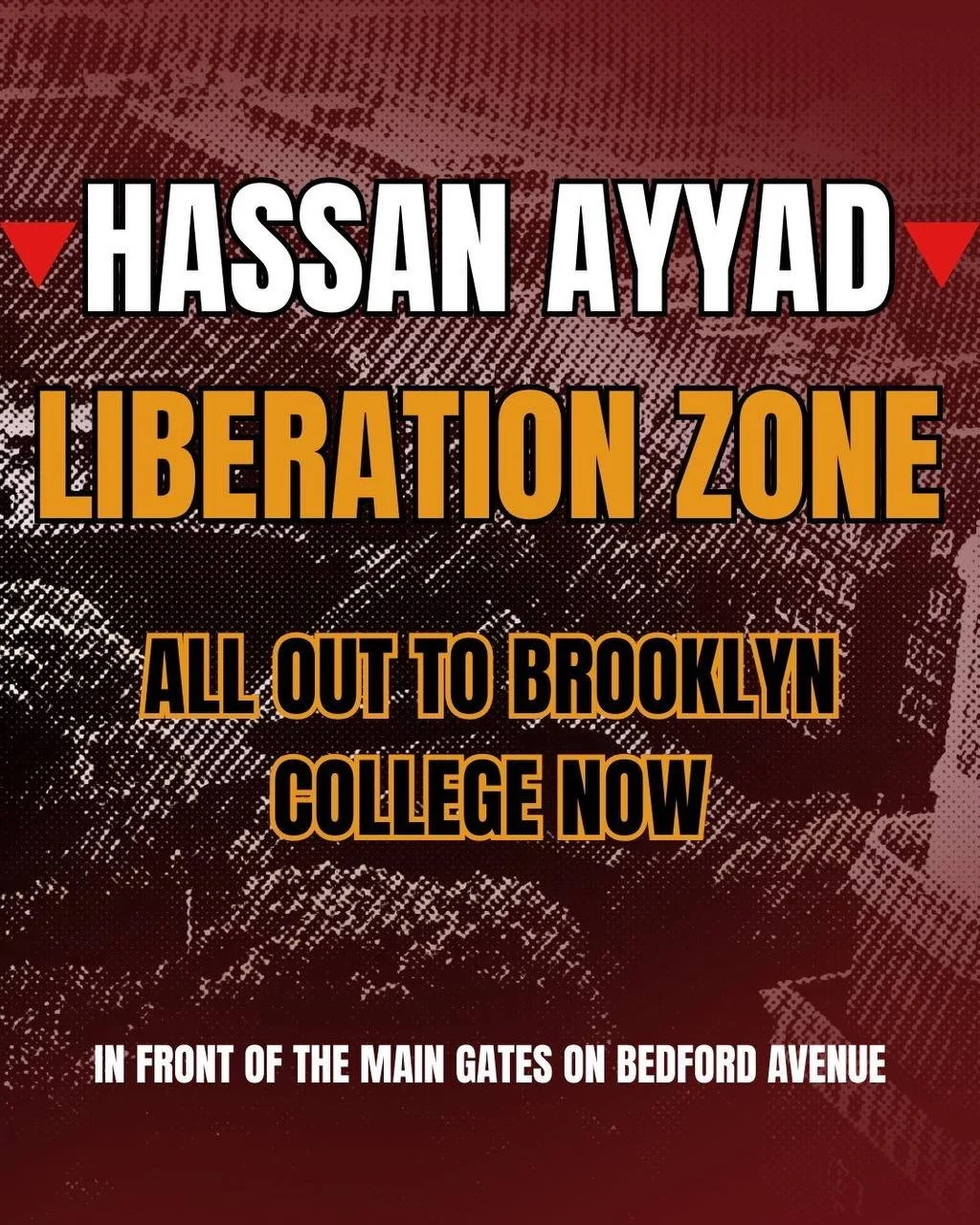Known Terrorist Organization Continues to Support U.S. Campus Protests
Executive Summary
As pro-Palestinian student protests surge across U.S. campuses, including recent encampments at Brooklyn College and Columbia University, a growing body of evidence reveals direct support from Samidoun—a group with deep ties to the terrorist-designated Popular Front for the Liberation of Palestine (PFLP). Despite being banned or sanctioned in multiple Western nations, Samidoun continues to fundraise, organize, and radicalize under the guise of activism, openly calling for confrontation and supporting militant escalation at American universities.
Analysis
The occupation of Brooklyn College’s East Quad lawn, now dubbed the “Hassan Ayyad Liberation Zone” after a 14-year-old Palestinian martyr, is the latest flashpoint in a rapidly spreading student protest movement fueled by anti-Israel sentiment and demands for institutional divestment from military and Zionist-linked entities. Protest organizers have demanded full disclosure of university financial ties to Israel, divestment from weapons manufacturers, and a so-called “People’s CUNY.” Students are urged to attend in groups, wear masks, and remain on high alert, reflecting a shift in protest culture toward militant posture and confrontation.
Driving the ideological engine behind many of these protests is Samidoun, a pro-Palestinian network with deep operational ties to the PFLP, Hamas, and Hezbollah. While publicly framed as a prisoner solidarity group, Samidoun has been officially designated as a terrorist organization by Canada, Germany, and the United States, which have accused the group of facilitating violent extremism and operating financial channels to fund terrorism. Despite these designations, Samidoun remains active in the U.S., using student activism as both cover and conduit for its agenda.
Samidoun’s social media accounts and encrypted channels, such as Telegram, have amplified student protest calls, including the Brooklyn College takeover, encouraging participants to obscure identities and escalate tactics. These messages mirror broader trends in student activism, as seen at UCLA, where a newly published zine openly promotes confrontation, militant resistance, and rejection of pacifism. The zine, released one year after the violent UCLA encampment, denounces liberal organizing strategies and celebrates injuries inflicted during clashes as badges of ideological commitment.
Meanwhile, Columbia University has taken disciplinary action against over 65 students and barred dozens of others after a pro-Palestinian protest in the campus library resulted in arrests, property damage, and inflammatory slogans such as “Columbia will burn.” The university’s response marks a shift toward less tolerance for protest disruptions, especially amid growing pressure from federal authorities. U.S. Secretary of State Marco Rubio has confirmed that visa statuses for foreign students involved in such protests are under review, and the Trump administration has already begun pulling federal funding from campuses seen as failing to control extremist activities.
Samidoun’s continued influence on these protests is not incidental. The group has facilitated rallies where chants include support for Hezbollah and condemnation of the West, and its leadership has praised violent acts against Israeli and Western targets. Its members, such as Khaled Barakat and Charlotte Kates, have openly supported Hamas’s October 7 attacks and have been photographed receiving honors from the Iranian regime. These connections raise significant concerns about the radicalization of U.S.-based activism and the ability of proscribed entities to manipulate vulnerable student populations.
As law enforcement agencies and academic institutions attempt to balance free speech with security, the continued alignment of campus protests with foreign-designated terrorist groups is becoming increasingly difficult to ignore. What began as solidarity with Gaza has, in some cases, evolved into movements glorifying violence, rejecting diplomacy, and actively undermining the stability of university environments.


